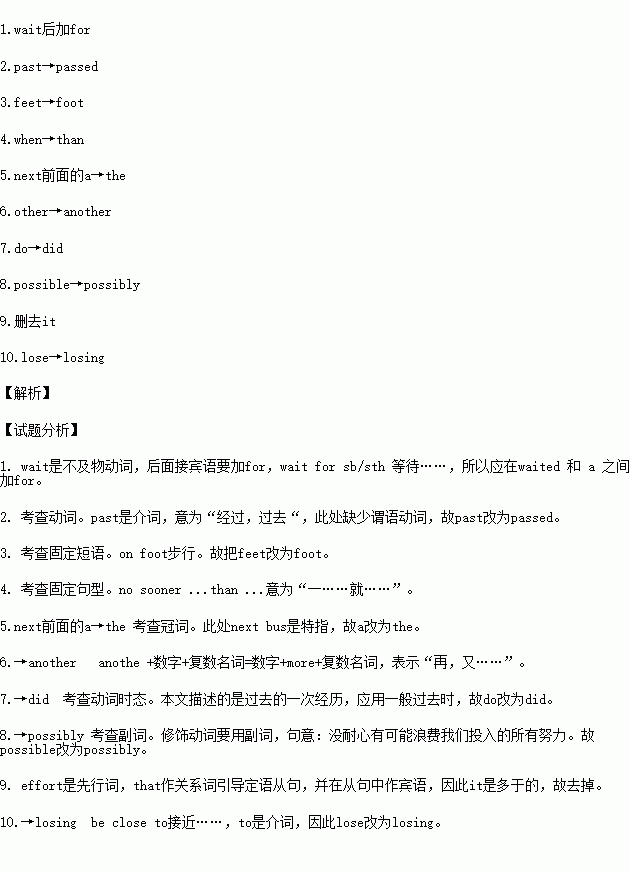��Ŀ����
�ٶ�Ӣ�������ʦҪ��ͬ��֮�佻�������ģ���������ͬ��д���������ġ����й���10�����Դ���ÿ���������������ÿ�������漰һ�����ʵ����ӡ�ɾ�����ġ�
����: ��ȱ�ʴ���һ��©�ַ��ţ��ģ�, ��������д���üӵĴʡ�
ɾ��: �Ѷ���Ĵ���б�ߣ�\��������
��: �ڴ��Ĵ��»�һ����, ���ڸô�����д���ĺ�Ĵʡ�
ע��: 1.ÿ���������ľ�����һ�ʣ�2.ֻ������10��, ���ߣ��ӵ�11���𣩲��Ʒ֡�
Patience is of great importance in our daily life. Once I waited a bus to come at a stop. 30 minutes past, but no bus came. Both upset and annoyed, I decided to walk on feet. But no sooner had I left when the bus arrived. I thought if I had waited for one more minute, I would have caught it. If I chose to take a next bus, I would have to wait for other 30 minutes. Only then do I realize my problem. Being impatient will possible waste all the effort that we have put it in. Now whenever I am close to lose my patience, I��ll think of this experience.

